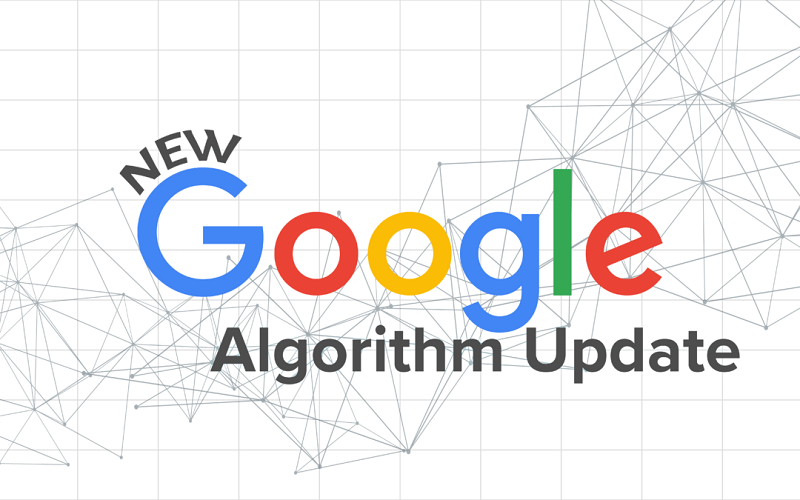Google’s Algorithm Overhaul: These Updates Are Impacting Much More Than Just Search

In the past three months, we’ve seen five major Google algorithm updates, potentially setting a new record. This year seems to mark the culmination of SEO trends from the past decade, bringing together key principles into a unified approach. Publishers are now required to focus on high-quality content, user experience (UX), and delivering genuine value, as the algorithm has evolved to effectively evaluate these elements.
A notable aspect of these recent updates is their influence beyond traditional organic search rankings. Admonetize, the programmatic ad partner for over 1,000 enterprise websites, has noticed a drop in traffic from various Google sources in some cases. While Google has previously suggested that algorithm updates could impact visibility in Google Discover and other search areas, the effects have been more pronounced in the past few months.
The publishers experiencing traffic declines span a wide range of niches, sizes, and global locations.
Let’s take a closer look at the five major updates. While each update has its specific focus, the overarching aim across all of them is to emphasize UX, content relevance, and the provision of helpful content.
Google Updates Between September and November
September 14, 2023 — Helpful Content Update Focuses on improving user experience by targeting issues such as intrusive ads and content excessively optimized for SEO. This update pushes publishers and webmasters to prioritize what is truly beneficial to readers.
October 4, 2023 — Spam Update Aims at identifying and penalizing thin, duplicated, misleading, and overly promotional content.
October 5, 2023 — Broad Core Update Conducts a comprehensive review of the entire index, reassessing sites based on all available signals.
November 2, 2023 — Broad Core Update This update affects traffic from Google Organic, Google News, and Google Discover, reflecting a broad re-evaluation of site performance.
November 8, 2023 — Reviews Update The latest Reviews update, with Google noting ongoing improvements to the system. Websites featuring reviews on various topics may experience algorithmic impacts if deemed low-quality. Key factors Google assesses include:
AI-generated content lacking substantive value Unauthorized article scraping False claims and clickbait headlines Thin affiliate content (such as listicles, roundups, and superficial reviews) Publishers may sometimes overlook spam updates, but Google frequently targets these four problematic areas: AI-generated content, unlicensed content scraping, misleading claims, and low-quality affiliate content.
Extreme Impact to Google Discover
The effect on Google Discover has been notably greater than usual, with many publishers seeing substantial declines in traffic. Although a glitch in early November did impact Discover traffic, most affected sites have seen only a modest recovery since then.
Discover traffic has always been unpredictable. I often tell publishers that seeing 300,000 pageviews from Discover one day and then none the next is fairly typical. This personalized content feed, available on the Chrome app and soon on desktop, depends entirely on the user’s search history. While any indexed content can appear, there are ways to improve compatibility with Discover, such as ensuring feature images are at least 1200px wide. However, there is no surefire way to guarantee increased traffic.
In a recent review of Discover traffic declines, Lily Ray highlighted a startling statistic. She reported that many site owners experienced dramatic drops in traffic, with impressions plummeting from tens of thousands or even millions to nearly zero. This includes declines from high daily numbers, such as 300,000 or 50-60,000 unique visitors, to almost none.
She also pointed out the significant “impact on well-established, authoritative sites.” Even sites with a long history of authority and high-quality content have seen considerable traffic drops. This challenges the belief that authoritative sites are unaffected by Google updates.
The Future of Discover
Looking ahead, I anticipate that Discover will become one of the most vital sources of traffic in the coming years, driven by Google's transformative changes in this area. Google's goal of “query-less search” aims to intuitively deliver users the next article they need before they even realize they want it.
This concept of “query-less search” reminds me of how social media platforms cleverly present enticing headlines that make me click without hesitation. This shift presents a prime opportunity for publishers to capitalize on the declining reliability of Facebook and X (formerly known as Twitter) as traffic sources.
One significant improvement in Discover that supports this view is the recent addition of the “follow feature.” This allows users to easily add publications to their feed with a single click, echoing the simpler days of Facebook and X.
For those looking to boost their content’s visibility in Discover, Google offers specific guidance.
While the major changes in Discover and the upcoming SGE (Search, Google, Ecosystem) create some uncertainty, I can assure industry insiders that despite evolving SEO, changes in publisher traffic, and the shifting value of websites, we are merely at the beginning of this transformation.